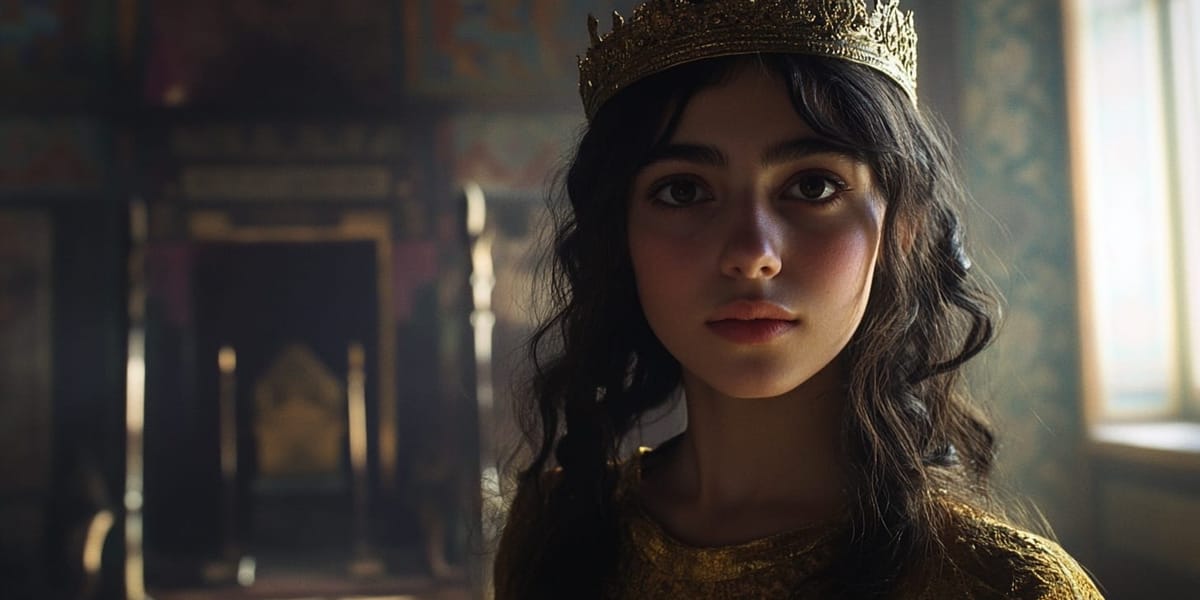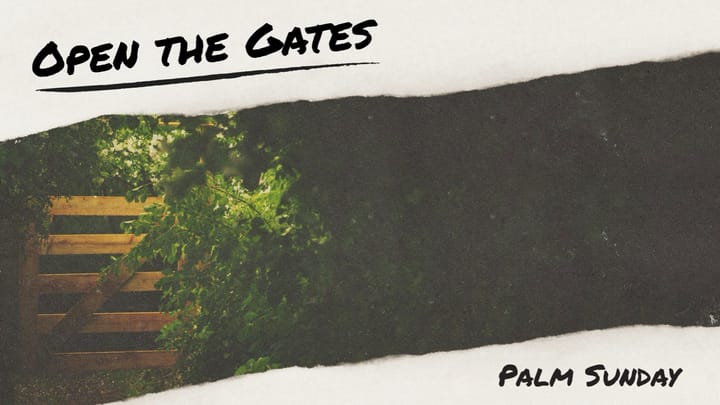Fairhaven Sermon 10-6-2024

In this week’s service, Rev. Peg Bowman preached on the story of Esther, reflecting on its rarity in sermons and the lectionary. She noted that while Esther is central to Jewish faith, especially through the celebration of Purim, the lectionary offers only a brief portion of her story. Rev. Bowman emphasized that Esther's story, while not mentioning God directly, is a powerful lesson on God's unseen presence and action through the complexities of money, power, and gender—issues that often make the story challenging to address in church.
Rev. Bowman then unfolded the narrative of Esther's rise from an orphaned Jewish girl to queen of Persia and how she saved her people from annihilation. She highlighted Esther’s courage and the hidden nature of God’s work behind the scenes, as well as the transience of human empires contrasted with the enduring reign of God. The sermon concluded with a reflection on how, like Esther and Mordecai, we can live as God's people in societies where God may not seem a priority, trusting that God remains in control.
Transcript
The last time when I was here with you, I preached on the subject of wisdom, and I mentioned that I'd never heard a sermon on wisdom before, which by the way, another pastor friend of mine commented the same thing. He says, It was not just me. It was kind of just one of those things that people rarely preach on. This week again, I'm going to preach on something I've never heard anybody preach on before, and that's the book of Esther.
The reading you just heard is 10 verses from the end of Esther's story, which is what the lectionary gives us. And I was wondering where the rest of the story was. So yeah, if you're familiar with the lectionary, it's a three-year cycle. So I went back through all three years to find the rest of Esther's story, and it's not there.
What we just heard this morning, that's it. That's all there is in the lectionary. So I thought to myself, That's just not right, because Esther's story is central to the Jewish faith, which of course is the foundation of our Christian faith, and our Jewish brothers and sisters have an important holiday called Purim that is a celebration of Esther's life. So why is this story not read and preached on? So here we go.
So as I thought about this question of why people don't preach on Esther, I noticed two things. First off, the book of Esther doesn't mention God specifically. God's presence is assumed throughout the whole story, and so is prayer, but God is not mentioned by name. But I think more important for preaching is that it's an awkward story to talk about in church because it centers around what I think of as the big three in society, money, power, and gender, all of which can be awkward to talk about at any time, but more so when you have all three subjects together and you're in church.
So the story of Esther is practical and timely, and so are the lessons we can draw from it. So let's dig in here. The setup for Esther's story is the Babylonian invasion of Jerusalem, and you recall that tragedy when that struck. The Babylonians destroyed the city of Jerusalem and the temple around 587 BC, and they took the Jewish people captive to Babylon and left behind only the poorest of the poor to work the land so it wouldn't go completely wild.
And we've talked about that in a number of different sermons. So the Jewish people lived in Babylon under the reign of King Nebuchadnezzar and briefly Belshazzar, and their prophet at the time was the prophet Daniel, and we know all these things from the book of Daniel. But what the Babylonians didn't see coming was a huge massing of power in Persia, the part of the world we call Iran today. And the king of Persia conquered Babylon less than 50 years after the Babylonians conquered Israel.
So the Persians basically moved in. They claimed everything in Babylon, including the Jewish people. So without physically moving very far, if at all, God's people were now living under Persian rule. And the Persian empire was huge and massively powerful.
I mean, just to give an idea, at its largest, the Persian empire stretched from India, which is like halfway between Africa and Australia, right, India, all the way over to Ethiopia and Africa. I mean, this is power and wealth like the world had never seen before. And the Persian empire lasted for 200 years. As for Babylon's foreign captives, the Israelites and other nations that Babylon had conquered, unlike in our world today, the Persians did not see foreigners as a problem.
The Persians saw foreigners as free labor, in other words, slaves. And this is why I chose our closing hymn for today as Lift Every Voice and Sing, which is a song of the end of slavery and the birth of freedom. So if there is a big picture idea for the book of Esther, it's that the empires of human beings and the oppression they bring don't last forever, but God does. The Babylonians, they were unbeatable for 50 years, and then the Persians beat them.
The Persians were unbeatable for 200 years, and then the Greeks beat them. I mean, it keeps on going. Closer to our time, the Holy Roman Empire of the Habsburgs was unbeatable for 400 years. On the other hand, the Soviet Union lasted only 69 years.
The empires of human beings do not last, but the reign of God does. And God works within all these human frameworks in ways that surprise us, and through people we would never expect, like a young teenage orphan girl named Esther. Now how Esther lost her parents, we don't know. What we do know is that she was adopted by her uncle Mordecai, who was related to King Saul and therefore was from the royal family and was treated as such by the Babylonians.
But under the Persian Empire, Mordecai was just another servant in the court of the emperor. And the name of the Persian emperor, as we were discussing here, I believe it's Ahasuerus, I think is how they pronounced it in Hebrew. It's a tongue twister. I call him Artaxerxes.
That was the Greek name. He was known by Artaxerxes. So one day when Mordecai, Esther's uncle, was resting in the courtyard of the palace, he overheard a couple of eunuchs plotting to kill King Artaxerxes. And I should mention the book of Esther talks a lot about eunuchs because there are quite a few of them in the palace.
Artaxerxes had a really bad habit of taking men from the people he conquered and forcing them to serve in the palace, particularly taking care of the royal harem. And he made them eunuchs so they wouldn't bother the harem. And I'm sure this did not go over well. At any rate, when Mordecai overheard this conversation between these two men, he reported it to the emperor.
The guilty parties were executed, and these events were written down in the permanent court records of Persia and then promptly forgotten. So sometime later, King Artaxerxes gave a massive banquet for all his officials and all his buddies. I mean, he was totally showing off the wealth of the empire. This banquet lasted 180 days.
It's almost half a year of feasting and drinking and being merry. And as the festival was drawing to a close, Artaxerxes added one more huge seven-day feast. And Queen Vashti was also permitted to give a seven-day feast for herself and her ladies. And on the seventh day, Artaxerxes commanded Queen Vashti, who was very beautiful, to come to the men's banquet wearing her crown so that all the men could see her beauty.
Now the Bible doesn't say this, but many Bible scholars and commentators say that the queen was commanded to attend the banquet wearing only her crown. And Queen Vashti said no. And the men took great offense and they consulted together and they decided that Vashti was out and her place and her crown would be given to someone better than she. So a search for the new queen began.
And the court officials were sent out throughout the empire looking for beautiful young virgins who just might please the emperor. And this went on for years. For years they looked. And Esther stayed hidden as long as she could.
But eventually she was caught up in one of these sweeps and she discovered what the process was like for young women. They were taken to live in the palace for a whole year, being served and trained by their personal eunuch. They're given beauty treatments and skin treatments and perfume treatments. You get the idea.
Prepped for the king for a year. And after a year's worth of treatments and training, each woman would be sent to the king for one night. And if he wasn't 100% sure he had found his new queen, that woman would then be moved into another wing of the palace where she would live until and unless he called her by name, which hardly ever happened. I cannot imagine a more boring existence.
Anyway, when Esther's turn finally came, she took the advice of her eunuch, whose name was Hagai, and he was really pulling for Esther. He did a beautiful job with her. And she put all of his advice to good use. And at the end of the night, Esther was chosen.
The emperor set Vashti's crown on Esther's head and she became the queen. After some time passed, there came an imperial official named Haman, who King Artaxerxes really, really liked. And he promoted him quickly. And at Haman's request, Artaxerxes passed a law that everyone in the empire must bow down to Haman every time they saw him.
And this law was passed, but Mordecai refused to bow down to Haman. Mordecai was a true believer in God, and he only bowed down before God. And Haman was so enraged by this that he plotted to destroy Mordecai, and not just Mordecai, but all the Jews, all of Mordecai's people. And Haman cast lots to decide on what day that would happen.
And the word for lots in Hebrew is parim, and that's where they get the name of the holiday, parim. So Haman cast lots to choose the day of the destruction of the Jews. And Haman then goes to the emperor and gets permission to wipe out these strange people, as he calls them, who have different laws and do not obey the king's laws. And the emperor says, Here's my signet ring.
Go do whatever you want to do. And when Mordecai hears this, he sends a message to Queen Esther, telling her to talk to the king on behalf of her people. But Esther answers, Hey, look, there's a law that says nobody can enter the king's presence without being invited. The penalty is death, unless he holds out the golden scepter.
I could be killed, she says. And Mordecai answers, You won't escape what's coming. And who knows, perhaps you've come to the throne for just such a time as this. And I want to highlight that thought just for a moment, because this could be true of any one of us at any time when we least expect it.
God puts us where we are, just as we are, according to God's wisdom, which none of us can see right now. But who knows, maybe you are here for just such a time as this. So Esther prays to God, and then takes her life in her hands and goes to see the king. And Artaxerxes holds out the golden scepter, and she lives.
Esther then invites the king and Haman, his number one man, to a banquet she has prepared. And while they're eating, as you heard a moment ago, the king asks her, What is it that you wanted? What is your request? Even to the half of my kingdom, it shall be yours. And Esther answers, Please come again, both of you, to another banquet tomorrow. And these dinners, of course, and the fact that there are two of them, are an indication that Esther is about to make a big ask.
And she's counting on these two men to be her champions, to be her heroes. At least that's what the men are thinking. And so Haman, feeling very sure of himself, goes home that night and builds a gallows in his backyard to hang Mordecai on. But that night, the king can't sleep.
So he orders a servant to go and find the palace's book of records, the history of the kingdom, and read it out loud to him. And when he hears the story of Mordecai, who exposed the conspiracy against the king's life, and he hears that Mordecai was never thanked for what he did, the king is troubled. And at just that moment, Haman is seen peeking around the corner, and the king asks, Hey, what would you do for someone who the king wishes to honor? And Haman figures he's the one who's going to be honored. So he tells the king, Such a man should be given a royal robe that the king has worn, and a horse that the king has ridden, and a royal crown on his head, and he should be led through the city by noble officials saying, 'Give honor, give honor.
' And the king answers, Go quickly and do this, everything you've said, for Mordecai. And of course, Haman is humiliated, but he does it. And later that day, the king and Haman are at the second banquet with Queen Esther, and the king asks again, What is your petition? What is your request? Even to the half of my kingdom, it shall be yours. And Queen Esther answers, If I have won your favor, let my life be given to me, and the lives of my people, for we have been sold to be destroyed and annihilated.
And the king is enraged, and he answers, Who is he, and where is he that is presumed to do this? And she answers, This Haman right here, he is a foe and an enemy. And at the king's command, Haman is hanged on the gallows that he built for Mordecai. And because an edict that has been sealed with the king's seal cannot be undone, all of the Jewish people are still in jeopardy. So at Artaxerxes' command, Mordecai writes another edict, giving the Jewish people the right to defend themselves and to plunder as they are able, and the king seals this edict, and it goes out.
Now in the royal city, most people living there understood that this was a political standoff, and they just pretty much ignored both edicts, right? But in the rest of the empire, people didn't know this, and close to 75,000 people were killed in the skirmishes. This was very costly for the emperor. So that was the end of that. The self of the Haman and all that he had done cost the emperor a great deal.
But after that, there was a peace for the people of Israel, there was honor for Queen Esther and for Mordecai, and that's what's celebrated at the holiday of Purim. So as we step back now and look at this story through 21st century eyes, many books have been written about Esther in the years since then, and people have commented that the books that are written today in our time tend to make Esther sound almost like a Disney princess, you know, a beautiful woman in rags to riches story, and how she and her man live happily ever after. That's not exactly how it went. This Miss Persia contest that Esther found herself in, along with thousands of other women was not something any of the women ever wanted for themselves.
And the eunuchs who prepared them for this competition were not nuts about having their life's work involve nothing more than making women look beautiful for a king who most of the time couldn't care less. Nobody ever asked any of these people, How do you feel about this? Their voices were silenced, voices of both men and women. And yes, the palace might have been pretty, and at least there was decent food there to eat, but there was no leaving the palace once you were inside. It's kind of like Hotel California.
You can check out anytime you want, but you can never leave. So Esther gave her very best effort every day of the time she spent there. She made friends among the eunuchs, and she cared about them. She listened closely to the eunuch who was assigned to her.
She took one shot with the king and gave it her very best effort, in spite of the fact that the king was much older than she was, and a foreigner, and was of a different religion than she was. And she was courageous in the presence of a man who thought nothing of ordering the slaughter of an entire nation. Bible teacher Rachel Held Evans, of blessed memory, once wrote this about the story of Esther. She wrote, What does it mean to be the people of God when you're being ruled by a violent and a godless pagan king? Is God still on the throne when the fate of his chosen people is left to the whims of kings like Artaxerxes? How are the powerless supposed to respond to power? The first message of the book of Esther is that God is in charge.
And this is always true, no matter what we see around us, no matter what sociopolitical machinations are going on, no matter what the people who think they're in charge are doing. And there's some interesting observations. Not once in this story does Artaxerxes make a decision on his own. He's always asking his friends, his buddies, even his wife, but the entire book of Esther, he makes no decisions on his own.
This emperor has no clothes. His power is, in a sense, an illusion. And God is behind the scenes, using the small and the weak and the unimportant people to bring humility to the powerful. God put Esther in a place where she could save her people.
God put Mordecai in a place where Artaxerxes owed him his life. And this set in motion a series of events that in a matter of 48 hours changed the direction of an empire. In the book of Ephesians, the apostle Paul writes, In spite of all appearances to the contrary, we do not wrestle against flesh and blood, but against the rulers, against the authorities, against the cosmic powers over this present darkness, against the spiritual forces of evil in the heavenly places. In the end, Esther goes down in history as what the Jewish people call an eshet hayil, a woman of valor.
This orphan girl with no power or place in society rises to become queen. And the Jewish scholars point out that the name Esther in Hebrew is similar to the word hidden. And she was hidden in plain sight and revealed at just the right time. Rachel Held Evans concludes that the story of Esther is a story about how we can live as God's people in a society where God is not a priority.
And specifically, we pray and we do our very best and then we leave the rest in God's hands. Because no matter how you look at it, ultimately God is in control. And so long as we are seeking God's will, we will always be, like Esther and Mordecai, safe in God's hands. Amen.


